On the third day of the Summer Institute, students from Peking University and the University of Tokyo gave their group presentations at Yuanpei College.
The first presentation titled “Utopian Elementary School” was given by Hu Lexuan, Nakai Hiromoto, Li Jing, and Komatsu Saki. Using elementary school as the starting point to imagine a utopian society, their presentation sketched some features of this small-scale utopian social system. In this sense, their discussion might have served as a potential attempt to encourage audiences to rethink current values that have shaped learning and teaching practices in present-day China and Japan.
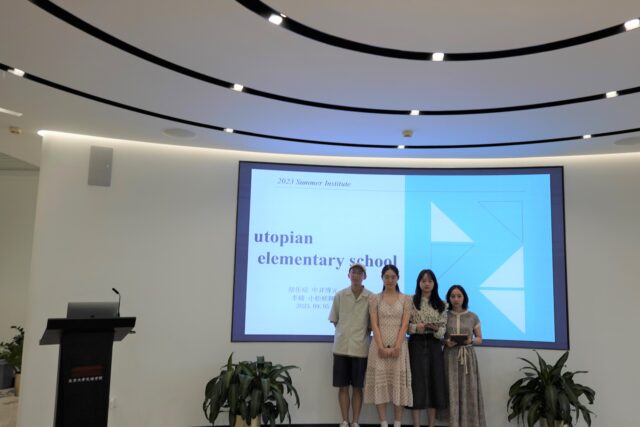
The second presentation was “Rethinking ‘Intimacy’: Contextualizing Intimacy in Contemporary East Asia” by Zhang Yihe, Kamiya Asa, Tian Yuxin, and Chen Yutao. Their presentation first examined how the commercialization of intimacy and the externalization of domestic labor led to the changing forms of intimate relationships in both Japanese and Chinese societies. Moreover, they also discussed how those situations gave rise to alternative practices of reconstructing intimacy.
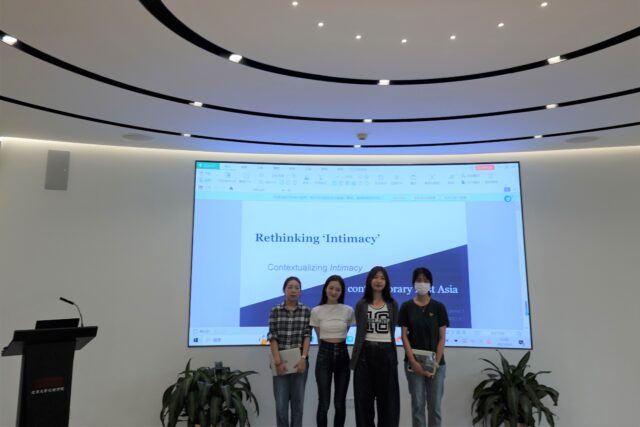
The third presentation titled “Leo Strauss’s Theory in Today’s Japan and China” was given by Luo Yilin, Zheng Jian, Qin Lumeng, and Kawato Kentaro. Their presentation reexamined Strauss’s lecture on “German Nihilism” (the topic of Professor Wang Qin’s lecture the previous day) based on ongoing social realities in two different political regimes of Japan and China.
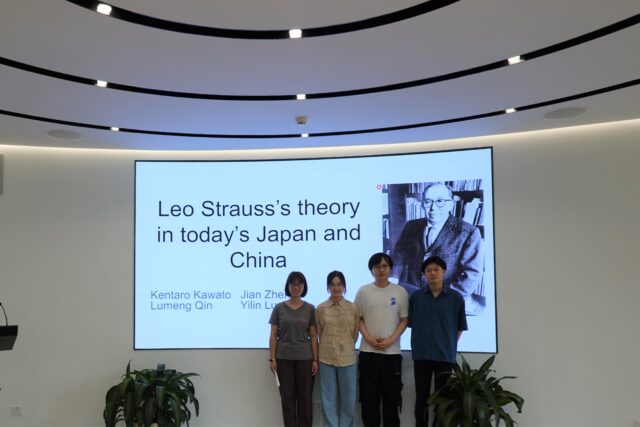
The fourth presentation was “Intimacy & Feeling in Different Types of Social Relationships” by Cheng Jiayi, Guan Yifei, Wang Yi, and Iwamoto Yuto. They proposed “inclusion” and “hospitality” as two key terms to analyze the practices of intimacy in a variety of social relationships, ranging from heterosexual romantic love to parent-child bond and friendship.
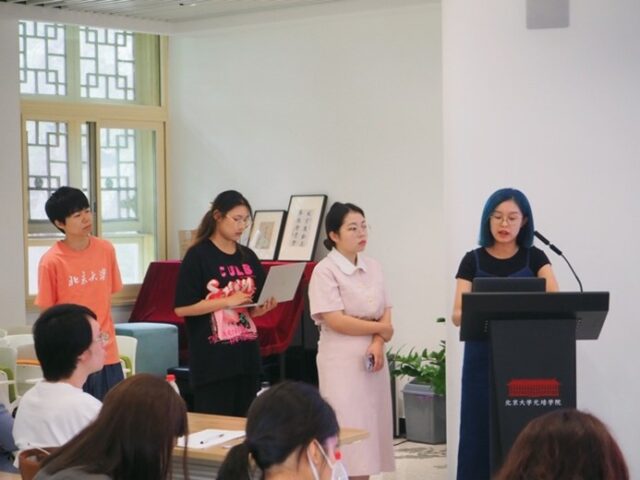
The fifth presentation, “Eating and Feeling: Examples in China & Japan”, was given by Tian Yuan, Wu Ziling, Liu Jiayan, and Koinuma Yoshimune. Using visual media as a means of analysis, their presentation discussed how eating serves as an occasion for intimacy to (re-)appear in our daily lives. Echoing the discussions of the second group and the fourth group, their observations took us back to the moment when intimacy appears in its specific form, which might be largely shaped by different social settings, cultural contexts, and historical memories.
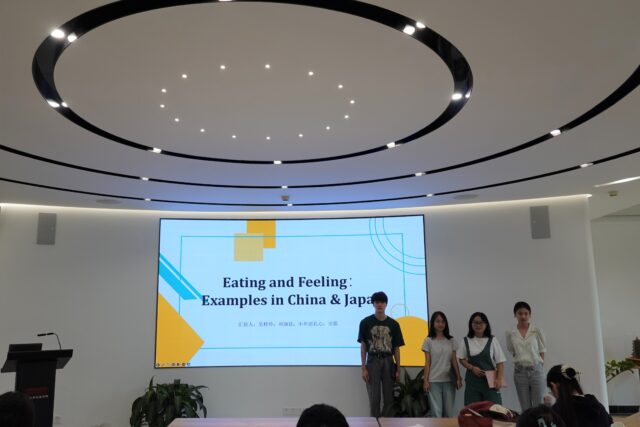
The last presentation was “ Tradition of ‘感’ in Chinese Philosophy” by Zhang Tianxing. Through the term gan/ganying, or attract-feel-react (in his translation), this presentation discussed the paradigms of metaphysics, epistemology, and ethics in Chinese philosophy.
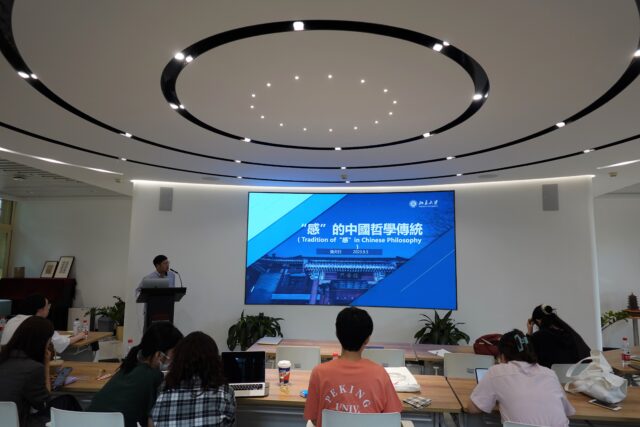
The summer institute provided students with the opportunity to participate in collective thinking and cross-cultural analysis to enhance their understanding of social realities in East Asia. Resonating with the Summer Institute’s aspiration to “create new liberal arts from the standpoint of East Asia” as Professor Sun Feiyu mentioned at the opening ceremony, today’s presentations could be viewed as experimental attempts by students to explore their ways of creating knowledge about East Asia.
Reported by Jia LI (EAA Research Assistant)
Photographed by Yilin Luo (Peking University student) and Jia Li (EAA Research Assistant)








